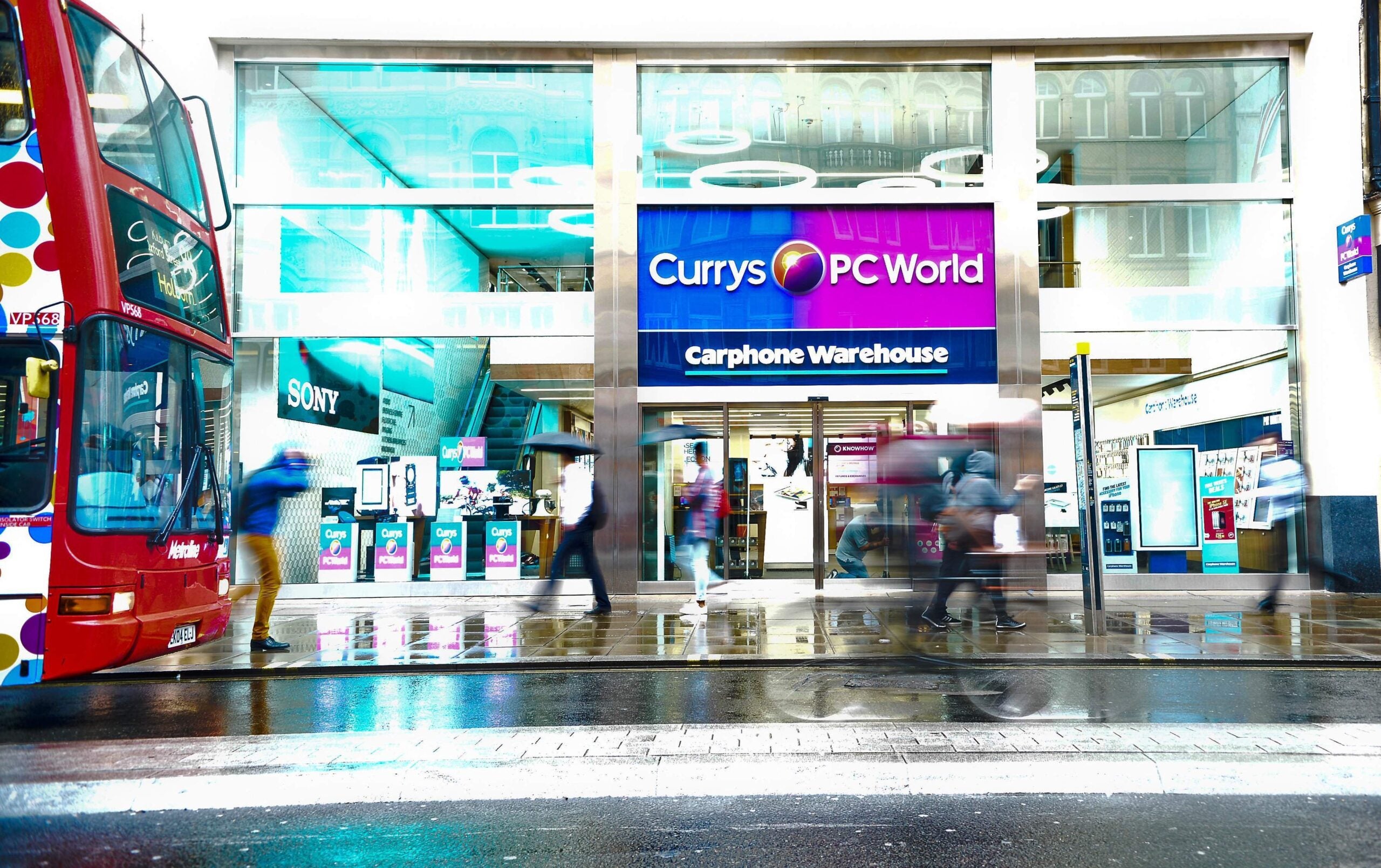
Dixons Carphone has reported a 24% drop in profits as mobile phone users hold on to their handsets for longer and opt for sim-only deals.
The electronics and telecoms retailer, which owns Currys, PC World, Carphone Warehouse and Team Knowhow, made a pre-tax profit of £382m for the year to 28 April, a £118m drop from the previous year’s profit. The company’s shares have remained relatively unscathed and were up almost 4% in mid-morning trading.
This is the latest in a series of blows for Dixons Carphone, with the company issuing two profit warnings in 2017 and one earlier this year.
In a statement, recently appointed CEO Alex Baldock said that the company had ‘plenty of work to do’, but that problems were ‘fixable’.
This follows the announcement that there was an attempt to compromise 5.9 million cards in one of the processing systems of Currys PC World and Dixons Travel stores, resulting in 105,000 non-EU payment cards without chip and pin being compromised. The company also revealed that 1.2m records containing non-financial personal data had been accessed.
Last month, the company, which employs over 42,000 people in eight countries, announced that it was closing 92 of its 700 standalone Carphone stores in the UK, citing changes in consumer habits as the reason behind the closures.
How well do you really know your competitors?
Access the most comprehensive Company Profiles on the market, powered by GlobalData. Save hours of research. Gain competitive edge.

Thank you!
Your download email will arrive shortly
Not ready to buy yet? Download a free sample
We are confident about the unique quality of our Company Profiles. However, we want you to make the most beneficial decision for your business, so we offer a free sample that you can download by submitting the below form
By GlobalDataHigh street retailers such as Dixons Carphone are struggling
Dixons Carphone is the latest in a long line of high street retailers who have run into trouble, with House of Fraser, Marks and Spencer and New Look announced that they were shutting branches so far this year. Electronics retailer Maplin also announced that it was going into administration in February.
2018 has seen major challenges for high street retailers, with high rent, heavy business rates, less footfall and a steep rise in online retail causing 741 shop closures in the UK the first quarter of the year.
With 217 shop closures so far this year, Electronics stores have been hit the hardest. Tougher margins following Brexit, the increasing popularity of streaming services and a lack of disposable income for luxury goods have contributed to the decline.
There has been a decline in mobile phone sales
According to a study by research company Gartner, global smartphone sales dropped by 5.6% between 2016 and 2017. This is the first ever decline since the company began monitoring sales in 2004. Iphone sales fell from 77 million to 73 million in the fourth quarter of 2017.
Market research company GfK also reported a 20% increase in SIM-only tariffs in the UK the third quarter of 2017.
This suggests that the rate as which customers replace mobile phone handsets is slowing. According to Gartner, ‘high expectations and few incremental benefits during replacement’ mean users are keeping better-quality phones for longer instead of frequently replacing cheaper models.
Globaldata UK Retail Research Director Patrick O’Brien told Verdict that this has partly contributed to Dixons Carphone’s decline:
“As people hold onto their phones for longer, with many switching to cheaper sim-only deals, Dixons decision to merge with Carphone Warehouse in 2014 looks increasingly flawed. The deal was done on the marketing pretence of dominating the ‘connected home’ space. Somehow, it argued that merging with a phone contract reseller was needed to sell more items that connect to your home wi-fi, and many in the media bought it. Carphone Warehouse, undoubtedly, got the better end of the deal. Baldock obviously remains upbeat, claiming that everything is fixable, but he has a tough job ahead.”
He believes that the bad news may continue for Dixons Carphone, with the danger of networks pulling out of deals:
“Mobile contracts sold through third parties are the least profitable for the networks, and there is even the possibility of one or more pulling out of Carphone Warehouse entirely. Vodafone did exactly this in 2006, and while it returned in 2009, the abandonment of Carphone Warehouse’s largest competitor, Phones4U, by the networks three years ago dumped it immediately into administration. Since then, the carriers have increased their physical presence, and may be prepared to drive a very hard bargain indeed.”




